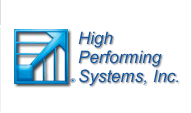Debra Cannarella
VP of Operations, High Performing Systems, Inc.
To say that 2020 and 2021 have been stressful is a gross understatement. The last 12 to 14 months have been the most stressful time that most adults have ever experienced in their lives. Even people who have endured wars, natural disasters or significant physical or mental trauma in the past would still likely say that the past year has been above-average on a stress continuum. The pandemic itself caused health stressors for people who contracted the COVID-19 virus. The secondary issues of lockdowns, losing friends or family to the virus, educational impacts on kids’ education, isolation, economic strain, worry and uncertainty added to the stress level. The list just from COVID-19 can go on and on. Add to that civil unrest and the resulting protests and riots. Political division further exacerbated tensions, and mass shootings have made headlines over and over again. As a nation and a world, we are overwhelmed. We need help.
Now more than ever, Emotional Intelligence is critical, and it can be part of the solution to the stressors we are facing. Emotional Intelligence (EI) can be defined in many ways. A simple summary version used by High Performing Systems, Inc., is that EI is the ability to use emotional awareness and management to interact appropriately to the situation. If our situation is stress-filled, we can improve our awareness and management (response) to handle it better. Stress has a significant impact on people’s ability to access and use their EI effectively. When you have a stressed and overwhelmed society, EI and decision making effectiveness will suffer. Does this mean we are doomed and stuck? Thankfully, no.
Once we realize that stress is causing lower EI, we can implement some helpful strategies to halt the downward cycle. We can improve our emotional resilience. Two key factors of being emotionally intelligent are awareness of self and others. 
Being aware of stress and how it’s impacting our everyday functioning is the starting point to using EI more effectively. We need to encourage people to recognize their own stress levels and create supportive environments where it’s okay to talk about stress and deal with it. We need to acknowledge stress in others as well. Most people recognize and understand some key signs of stress, but many are hesitant to talk about or deal with it when they see those signs in others. We need to be better at how we recognize and talk about stress.
After we increase awareness, the next steps are related to action. First, we need to manage ourselves better. We need to take initiative for our own well-being. We can’t wait for things to happen or hope that the situation will just get better on its own. Now is the time to take control, be adaptable and take charge of our circumstances. Everyone has heard the adage that you can’t control what happens to you, but you can always control how you respond. Your attitude and response are more important than the event you experienced. Learn how to take full advantage of EI skills such as flexibility, assertiveness, optimism and impulse control. Take charge of your response, and your sense of empowerment and control will naturally follow. And, finally, we have to take care of each other. Managing and building relationships are cornerstones of every EI model. Using the skill of empathy, we should practice being more patient with each other. Showing kindness and compassion won’t cost us anything. But the gains, especially now in such a stressful year and in the face of tremendous tension and unrest, will pay dividends, not just for ourselves, but for the greater good.
It all boils down to the golden rule: treat others the way you want to be treated. Or, even better, consider the platinum rule: treat people the way they want to be treated. Imagine how much more emotionally intelligent we could be if we had enough awareness of self and others and enough management of our response to apply that rule. As a society, we won’t immediately see an end to all the stress that has accumulated over the past year, but we can certainly work together to reduce the stress. Once we get the ball rolling, we can generate an EI avalanche of empathy and kindness toward others.
For a printable PDF of this article, click here.
_____________________________________
Debra Cannarella is the VP of Operations at High Performing Systems, Inc. (HPS), a consulting company that provides assessments, consulting and training solutions to help organizations excel. HPS conducts certification training on the EQ-i 2.0 assessment and provides individual, leader and executive coaching to clients. Contact Debra by email at debra@hpsys.com.
High Performing Systems is an award-winning world leader in EQ-i 2.0® certification (since 2005), EI training and implementation, leader coaching and success profiles. Call 706-769-5836 to talk with an experienced EI practitioner about your organization's specific needs. |
